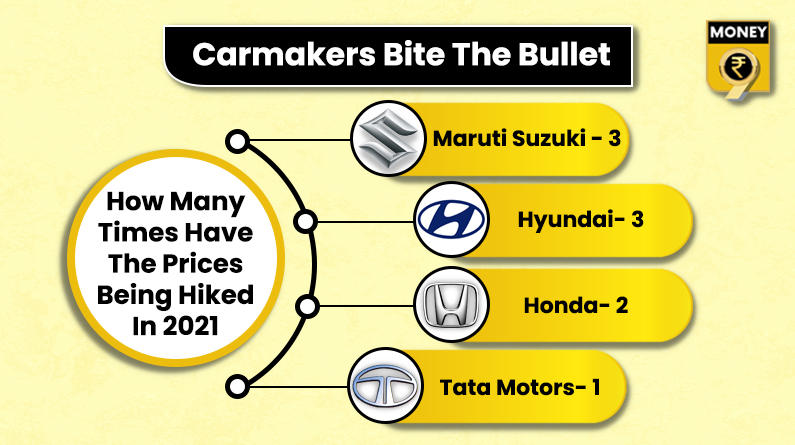Here’s why customers may have to wait longer for Maruti Suzuki cars this festive season
Maruti Suzuki produced 1.7 lakh units in July but it was slashed to 1.33 lakh units in August

The global semiconductor shortage has hit the production of cars across the world and its effects can be seen in India too. India’s largest carmaker Maruti Suzuki has announced to slash its production in September by a staggering 60% because of the global chip shortage crisis.
According to an official press release, owing to a supply constraint of electronic components due to the semiconductor shortage situation, the company is expecting an adverse impact on vehicle production in the month of September in both Haryana and its contract manufacturing company, Suzuki Motor Gujarat (SMG) in Gujarat. Though the situation is quite dynamic, it is currently estimated that the total vehicle production volume across both locations could be around 40% of normal production.
Massive cut in output
The plants were operating in peak capacity in June and following that the company manufactured over 1.7 lakh units in July, but it had slashed its production by 22% in August to 1.33 lakh units, according to a report in Business Standard. A 60% cut in production will translate to just 68,000 vehicles being produced in September. This in turn will hit the sales during the festive season and also lead to longer waiting periods and in some cases, certain variants might become unavailable as well.
The customer sentiment during this festive season might also be hit by another set of factors including the hike in prices of products and a frequent surge in fuel prices, as per a report in Mint. The report added that a limited supply of vehicles at dealerships owing to chip shortage will impede the automakers from effectively meeting the demand at a time when it is gradually increasing. In order to cope with the global chip shortage, many automakers have cut down their vehicle output and might also deliberate on shutting down factories temporarily.
Maruti Suzuki’s vehicle sales have declined by 20-22% compared to the FY18-19 levels, the report added.
Hike in prices of cars and fuel
Maruti Suzuki in this calendar year has so far hiked its prices thrice to balance out the impact of rise in commodity prices. “Increase in fuel prices does have a negative impact on consumer sentiment for car demand. Irrespective of the last couple of reductions, fuel prices are at a high level. We have the CNG option and the running cost is really low. So, unlike petrol and diesel where the running cost is Rs 4.50 per km, the same for CNG is Rs 1.60,” said Shashank Srivastava, senior executive director, marketing and sales, Maruti Suzuki.

Download Money9 App for the latest updates on Personal Finance.
Related
- ओला इलेक्ट्रिक ने S1 Zen3 स्कूटर की आपूर्ति शुरू की
- बासमती चावल पर GI टैग पाने के लिए भिड़े भारत- पाकिस्तान, क्यों खास है यूरोपियन यूनियन की ये मुहर
- आ गया नया इनकम टैक्स बिल, जानें अब ओल्ड और न्यू रिजीम में कहां-कहां बचेगा पैसा
- BlackRock भारत में देगी 1200 लोगों को नौकरी, AI एक्सपर्ट के लिए जल्द शुरू होगी हायरिंग
- Budget Highlights 2025: 12 लाख तक कोई Income Tax नहीं, कैंसर की दवाइयां होंगी सस्ती; जानें 10 बड़ी बातें
- कैफे में बैठने के लिए भी अब पैसे लेगा Starbucks, 29 जनवरी से बदल जाएगी कंपनी की पॉलिसी

